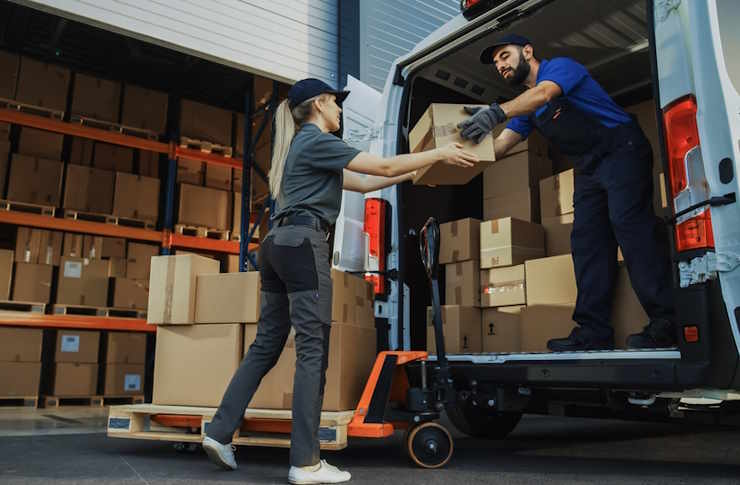Packing Jobs: Global Roles, Conditions, and Career Insights
Packing jobs play a crucial role in various industries worldwide, ensuring products are safely prepared for storage, transportation, and delivery. These positions involve carefully wrapping, boxing, and organizing items for shipment or storage. From warehouses to production lines, packing professionals contribute significantly to the smooth operation of supply chains across diverse sectors. This article explores the different aspects of packing jobs, including roles, working conditions, and career opportunities in this essential field.

What industries commonly employ packing professionals?
Packing jobs are prevalent across numerous industries, each with its unique requirements and specializations. In the warehouse sector, packers are responsible for preparing items for storage or shipment, often working with a wide range of products. Production facilities employ packers to ensure manufactured goods are properly packaged for distribution. The food industry relies on packers to maintain hygiene standards and preserve product freshness during packaging. Pharmaceutical companies require specialized packers who understand the importance of maintaining sterile conditions and adhering to strict regulations. Fashion retailers depend on packers to carefully handle and package clothing and accessories. In the electronics industry, packers play a crucial role in safeguarding delicate components and devices during transit.
What are typical working conditions for packing jobs?
Working conditions in packing jobs can vary depending on the industry and specific role. Many packing positions involve shift work, which may include early mornings, evenings, or night shifts to accommodate continuous production or shipping schedules. Protective equipment is often mandatory to ensure worker safety, such as gloves, safety glasses, and steel-toed boots. The work environment is typically indoors, often in warehouse or factory settings, which may be temperature-controlled or subject to varying conditions. Packing jobs frequently require standing for extended periods and may involve repetitive motions, making physical stamina and attention to ergonomics important considerations.
What skills are essential for success in packing roles?
Success in packing jobs requires a combination of physical and soft skills. Attention to detail is paramount, as packers must ensure products are correctly packaged and labeled. Teamwork is essential in most packing environments, where coordination with colleagues and other departments is crucial for efficient operations. Time management skills are valuable, as packers often work under tight deadlines to meet shipping or production schedules. Physical dexterity and the ability to lift and move objects safely are important for handling various products. Additionally, basic math skills for counting and measuring, as well as the ability to follow written and verbal instructions, are typically required in packing roles.
Where are packing jobs commonly available today?
Packing jobs are widely available in areas with significant manufacturing, distribution, or e-commerce presence. Large warehouses and fulfillment centers, often associated with online retailers, frequently offer packing positions. Industrial parks and manufacturing hubs are common locations for production-related packing jobs. Urban areas with diverse economic activities tend to have a higher concentration of packing opportunities across various industries. Additionally, seasonal peaks in retail and shipping can lead to increased demand for temporary packing positions, particularly during holiday periods.
How can job seekers explore packing career opportunities?
Exploring packing career opportunities involves several strategies. Job seekers can start by searching online job boards and company websites for openings in their area. Many large retailers, manufacturers, and logistics companies regularly hire for packing positions. Temporary staffing agencies often have connections with businesses seeking packers, providing opportunities for short-term work that can lead to permanent positions. Attending job fairs, particularly those focused on manufacturing or logistics industries, can provide direct contact with potential employers. Networking with professionals in related fields and joining industry-specific online forums can also uncover unadvertised opportunities.
What are the prospects for advancement in packing careers?
While entry-level packing jobs may not require extensive qualifications, there are opportunities for advancement within the field. With experience, packers can progress to supervisory roles, overseeing teams and managing workflow. Some may advance to quality control positions, ensuring packaging meets company and industry standards. Others might transition into logistics coordination or inventory management roles, leveraging their knowledge of packing processes. For those interested in broader career growth, packing experience can be a stepping stone to other positions in supply chain management, production planning, or operations management. Continuous learning and adaptability are key to advancing in this dynamic field, as technology and industry practices evolve.
In conclusion, packing jobs offer diverse opportunities across multiple industries, with roles ranging from entry-level positions to specialized packaging experts. While the work can be physically demanding and often involves shift work, it provides essential skills and experience that can lead to various career paths within the logistics and manufacturing sectors. As global trade and e-commerce continue to grow, the demand for skilled packing professionals is likely to remain steady, making it a viable career option for those interested in hands-on work in the supply chain industry.




